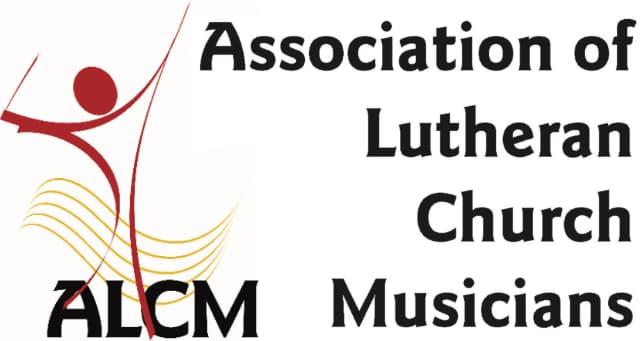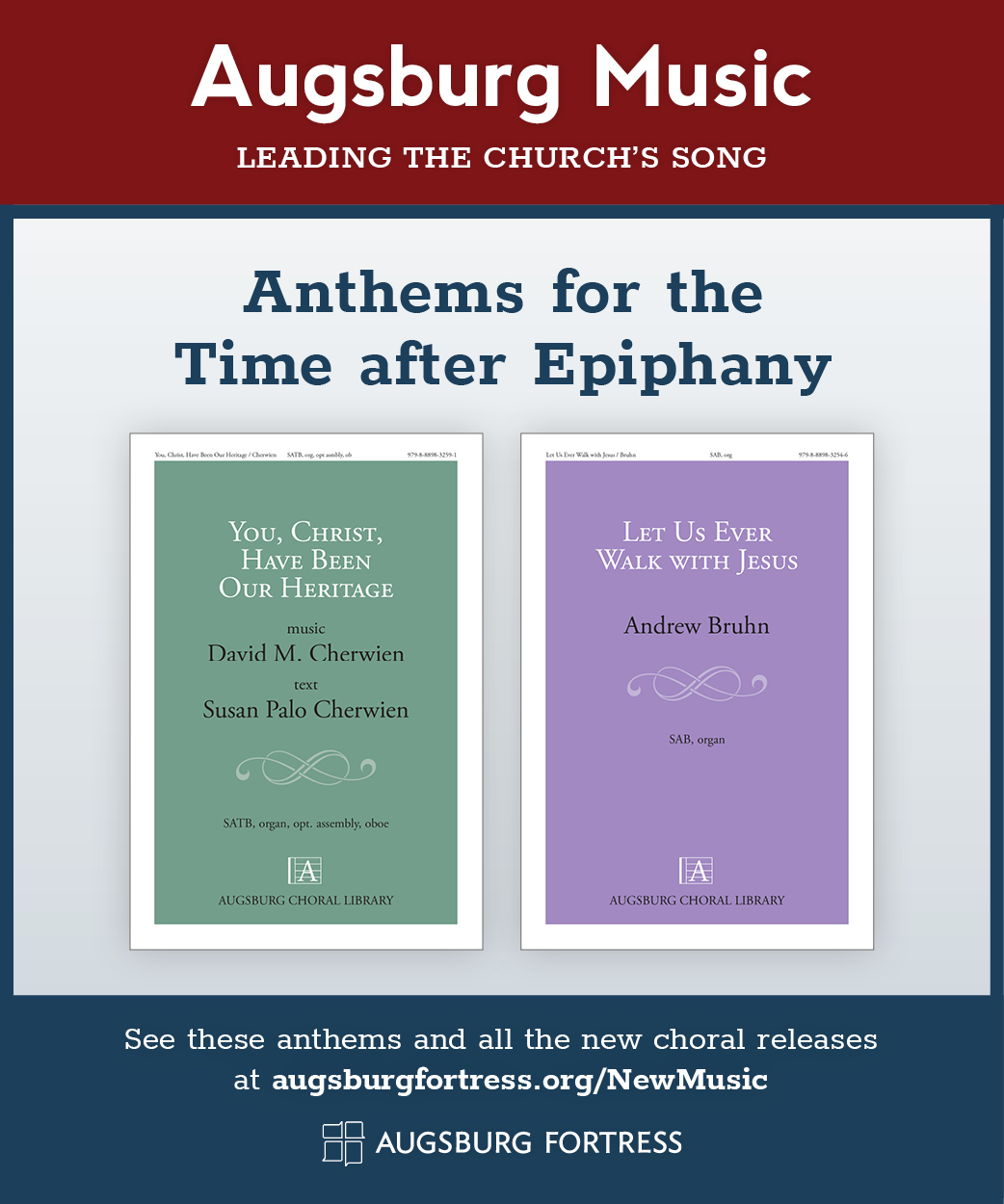Employment Resources
The resources in this section have been developed to assist congregations in the process of searching for and hiring a musician. Your congregation may find it beneficial to follow the steps below “to the letter,” or you may wish to “pick and choose” the steps that are most beneficial to you. Click on the ⊕ icon to the right of the step to view a more detailed description and additional supporting resources. Whether or not you decide to follow each step, we urge you to review the description & resources linked to each step before determining your final hiring process.
1. Lutheran church musicians: who they are and what they do
Lutheran church musicians lead the church’s song. In the Lutheran tradition, church musicians are often called cantors. This includes the roles of choir directors, organists, pianists, instrumental leaders, praise band leaders, song leaders, composers, arrangers, and worship planners. While some are employed in full-time positions, many are employed part-time, and others serve as volunteers.
Lutheran church musicians:
- Proclaim God’s Word, Jesus Christ, in worship, through music.
- Lead the church’s songs and hymns, plan and perform choral and instrumental music, and use their talents to lead and grow the congregation’s voice.
- Celebrate the fact that the Lutheran church is a singing church and recognize that the primary musical voice is that of the assembly gathered for worship.
- Challenge and stimulate a congregation by finding ways to engage people of all ages and backgrounds in the church’s music.
- Grow and change as part of a dynamic, evolving vocation, proclaiming God’s Word and celebrating God’s sacramental presence.
The statement above is adapted from ALCM’s document “Called to Be a Living Voice” and is available in both English and Spanish.
2. Where to begin
Whether you are creating a new position or filling an existing role, begin and bathe your search process in prayer. Acknowledge that such transitions evoke a sense of communal and personal anxiety as well as anticipation.
With the changes to come, it is good to be reminded that, amid all the flux and feelings of unsettledness and upheaval, God is with you and God will still be praised in your congregation as the search process unfolds.
Take the time that is necessary to journey through this process and, as best you can, do not be in a hurry. Breathe, pray, and collaborate with your fellow congregants and search committee members, and trust that the Holy Spirit will guide you to the right person and will guide that person to you. Consider whether a time of interim leadership would be helpful.
Begin conversations about who will be responsible for organizing a plan and timeline to guide the replacement or creation of a new position. Responsibilities may be shared between existing or newly appointed committees. Some or all of the steps in this process may assist in forming a timeline for your context.
Resources
- Prayers, devotions
O God, you have called your servants to ventures of which we cannot see the ending, by paths as yet untrodden, through perils unknown. Give us faith to go out with good courage, not knowing where we go, but only that your hand is leading us and your love supporting us; through Jesus Christ our Lord. Amen. (Eric Milner-White)
- Encouragement from hymns and scripture
How oft, in making music, we have found a new dimension in the world of sound, as worship moved us to a more profound Alleluia.
So has the church in liturgy and song, in faith and love through centuries of wrong, borne witness to the truth in ev’ry tongue: Alleluia!
Let ev’ry instrument be tuned for praise; let all rejoice who have a voice to raise; and may God give us faith to sing always: Alleluia!
(“When in Our Music God Is Glorified”)
No storm can shake my inmost calm while to that Rock I’m clinging. Since Christ is Lord of heaven and earth, how can I keep from singing? (“My Life Flows On in Endless Song”)
…and from morn to set of sun, through the church the song goes on.” (‘Holy God, We Praise Your Name”)
“Nothing in all creation can separate us from the love of God.” (Romans 8:39)
“Let everything that has breath praise the Lord.” (Ps. 150:6)
3. Affirm transition and closure
Transitions are holy times in a congregation, and can be joyful and/or painful, depending on the circumstances. A servant of the church is moving on; colleagues are taking leave from one another; the ministry of worship and music in your congregation will be lifted up and evaluated; changes will provoke some to excitement and others to anxiety. If a current musician is leaving, consider bringing their ministry to closure with a public rite of thanksgiving as appropriate. Send this servant of the church’s song on their way with scripture, song and prayer; this will graciously assist all with the framework of boundaries necessary for good leave-taking.
Denominational resources
- ELCA – “Farewell and Godspeed” available electronically on sundaysandseasons.com. Printed in Occasional Services for the Assembly.
- LCMS – “Farewell and Godspeed” available electronically in Lutheran Service Builder. Printed in Lutheran Service Book: Agenda.
- WELS –
- ALCM Resource: Thanksgiving for Church Musicians MS Word PDF
4. Envision the future
The visioning process is an essential step. Invest the time necessary to have thoughtful conversation about ministry and mission. What role has music played in the ministry of your congregation? What resources are currently available? What is the future vision of music in your congregation? These conversations will inform the position(s) you will create. You can then determine fair and realistic expectations to support the congregation’s vision and resources.
Resources
- Visioning Process for Congregations
- Called to Be a Living Voice (Adopted October 2016)
5. Form a search committee
In many contexts a search committee manages the recruitment and hiring process, which may be informed by congregational policy. It is important for the search committee to include individuals who understand and support the church’s music ministry and vision, and it is beneficial to include a wide representation of the congregation and pastoral leadership.
6. Translate vision into a position description
Craft a position description that attempts to fulfill the needs and desires for music as it relates to the congregation’s vision and its mission statement.
Depending on the scope of the position, the description might include:
- Proposed title of the position
- Brief description of congregation: location, size, etc. (demographics)
- Congregation’s vision and mission statement
- Musical resources available (instruments and facilities)
- Position duties & expectations
- Qualifications (education, experience, etc.)
- Application process
Resources
7. Determine equitable compensation
Providing equitable compensation packages for ministry positions is at heart a justice issue. Begin by determining the scope of the position and assessing the number of hours it will take. This is the point at which a reality check is helpful. Can the position as defined realistically be completed in the number of hours proposed? Are the education and experience requirements in line with the scope of the position and the proposed salary range? What elements of your compensation package might be variable and negotiable?
Factors that influence a base salary include:
- Geography/location
- Rural, suburban, urban
- Cost of living
- Size of congregation
Compensation packages may encompass a number of additional components:
- paid time off
- health insurance
- retirement
- continuing education (time & funding)
- book/music allowance
- sabbatical policy
- parental leave
- professional memberships such as ALCM
The Federal Trade Commission (FTC) has stated that providing salary guidelines as a professional membership organization restricts fair competition in the work place. Accordingly, ALCM does not provide specific salary recommendations.
Resources
- The Hours Per Week Misconception In tempo 2019, no. 2
- Considerations for Calculating the Weekly Hours of an Organist and/or Director of Music (AGO)
- Samples from ALCM job listing service
8. Define application process
Before posting a position listing, determine the application deadlines and requirements. Consider what materials candidates will submit (resume, video/audio sample, references, etc.). Begin to discuss the interview and audition process.
Resource
- Sample interview questions and audition process “Interviewing a Church Musician”
9. Publicize position and receive applications
It is time to begin recruiting. After posting the position with the ALCM job listing service, consider contacting other organizations and institutions to recruit potential applicants. There may be specific candidates you wish to contact. Determine how applications and associated materials will be received and shared with the committee.
Ideas for places to post position description:
- Synod/District newsletters
- College/University music programs
- Seminaries
- AGO (American Guild of Organists)
- Other denominational musician organizations
10. Review applications
Read and listen carefully to the application documents and recordings. If necessary, narrow the pool down to a manageable number. There may be one or more applications that rise to the top. If a viable candidate(s) has not emerged, perhaps the description and/or compensation could be revisited.
11. Interview and audition
The interview process will vary in time and scope depending on the responsibilities of the position. Refine common interview questions and audition requirements. Communicate a schedule and requirements with selected candidates.
Resources
- Sample interview questions and audition process: “Interviewing a Church Musician”
12. Identify finalists
Prayerfully discern which candidate(s) best align with the congregation’s mission and vision of its music ministry. A single candidate may rise to the top. Several equally qualified candidates may need to be ranked. Candidates may surface who have gifts in areas that were not initially identified as having priority. Be open to the possibility of revising the position description based on a finalist’s gifts or supporting additional training.
13. Offer position
Once a decision has been made, make an offer to the candidate and allow time for candidate discernment and possible negotiation. When a candidate has accepted the position, notify other applicants in a timely manner. Consider sharing personnel policies and other pertinent information when offering the position.
Resources
- Congregation/Denomination Personnel Policies
14. Welcome and celebrate
Congratulations! Coordinate with the candidate when to make a public announcement both within the congregation and beyond. Consider how to celebrate this new beginning—socially, liturgically, and within the community. Remember to thank interim musicians, search committee, etc.
Resources
Denominational installation rites:
- ELCA – Available electronically on sundaysandseasons.com. Printed in Occasional Services for the Assembly.
- LCMS – Available electronically in Lutheran Service Builder. Printed in Lutheran Service Book: Agenda
- WELS –
These materials have been conceived to be a living resource that will grow and change. If you have suggestions for additional resources to be added, please email us at office@alcm.org.
Members of the Employment Resources Task Force:
Kevin Barger
Rev. James Boline
Cheryl Dieter
Ryan Hostler
Anne Krentz Organ
Paul Soulek
John Weit


